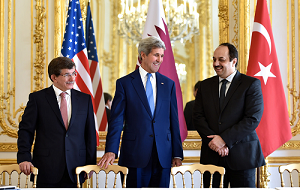Turkey Competes with Israel and India to be a Major MENA Weapons Supplier
By Michael Tanchum
With record-breaking arms exports globally, Turkey’s growing market share in the Arab monarchies holds the potential to greatly expand Ankara’s role as a security provider across the Middle East and North Africa. At the same time, Turkey faces growing competition from Israel and India, which have significantly expanded their own weapons sales to the Arab monarchies, notably the UAE and Morocco. Deepening defense cooperation in ways that Turkey has not, Israel and India have engaged in the co-development of weapons systems with Arab defense firms and have established local weapons manufacturing in the Arab world. The next phase in the competition for the MENA weapons market share, as well as the regional geopolitical clout that accompanies it, could be determined by Saudi Arabia, raising Ankara’s geopolitical stakes in securing a sizable purchase of Turkish weapons by Riyadh.
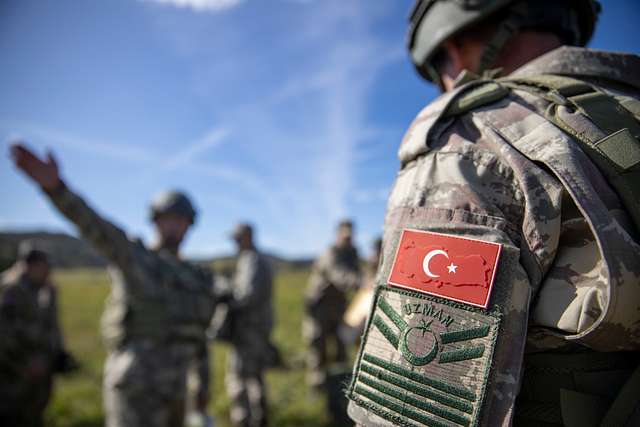
In 2024, the Turkish defense industry posted yet another record-breaking year for exports, with overseas arms sales jumping 29% over the previous year. According to the Secretariat for Defense Industries (SSB), Turkey’s 2024 defense and aerospace exports totaled $7.2 billion. Three Turkish defense firms are among the ‘Top 100 arms-producing and military services companies’ list published annually by the Stockholm International Peace Research Institute (SIPRI). Turkey’s Aselan, manufacturer of advanced military products for air, land and maritime forces, achieved the 54th spot in the SIPRI rankings, while drone-maker Baykar and Turkish Aerospace Industries ranked 69th and 78th respectively. Increasing its global market share through the sale of armored vehicles, drones, warships, and electronic warfare systems, the Turkish defense industry services about 180 countries. While Turkish arms sales provide Ankara with geopolitical clout within the NATO alliance and across several geographical theaters, Turkey’s growing sales in the Middle East and North Africa (MENA) region merit particular attention, as recent exports to Arab monarchies hold the potential to expand Turkey’s strategic partnerships and widen its role as a regional security provider.
In late January 2025, Turkish officials suggested that a major arms deal would soon be concluded with the Kingdom of Saudi Arabia, the world’s second largest arms importer. It has been reported that Ankara expects to sign a $6 billion arms deal with Riyadh during Turkish President Recep Tayyip Erdoğan’s state visit to the kingdom in March 2025. Turkey’s Foreign Minister Hakan Fidan visited his Saudi counterpart in Riyadh on January 28, 2025.
The 2025 deal builds upon Saudi Arabia’s 2023 agreement to buy high altitude drones from Baykar, but would be much larger in scope, including Turkey’s Altay main battle tank, missile defense systems, and perhaps even Turkey’s Kaan fighter jet, which passed its first test flight last year but still is far from operational readiness.
The Turkish-Saudi arms deal would be the capstone to Turkey’s prior advances in arms sales to the Arab monarchies, outside its strategic partnership with Qatar. One year ago, Aselan opened an office in the United Arab Emirates (UAE), which had been a staunch geopolitical rival to Turkey for much of the previous decade. Signifying the marked turn around in relations between Ankara and Abu Dhabi, Aselan signed a cooperation agreement with the UAE defense firm Calidus. In the western end of the MENA region, Morocco has been increasing its arm purchases from Turkey, with Rabat having ordered 200 Cobra II armored vehicles from the Turkish defense firm Otokar in 2024. In early 2025, Morocco took delivery of its first consignment of Baykar’s Bayraktar Akıncı combat drones. Rabat’s 2024 purchase of these sophisticated high-altitude, long endurance drones builds upon its 2021 purchase of 13 Bayraktar TB2 drones from the company. Morocco’s arms purchases represent an important geopolitical nod toward Ankara, given Turkey’s relationship with Morocco’s neighbor and bitter regional rival Algeria.
IMPLICATIONS: Despite Turkey’s impressive expansion of its arms exports to previously more estranged Arab monarchies, the sales also indicate the limits of Turkey’s appeal and the power of competing arms exporting countries to provide a compelling alternative. Morocco is a case in point. While Baykar established a subsidiary in Morocco to provide maintenance and spare part services for its unmanned aerial vehicles (UAVs), the scale of the company’s investment shows no indication of joint Turkish-Moroccan co-production or co-development. In contrast, Morocco has developed a deep and multi-variegated arms purchasing relationship with Israel including co-production.
Even before the December 2020 renormalization of relations between the two countries, Israel was Morocco’s third largest arms supplier, covering 11% of its military needs. The relationship has expanded considerably since, with Israel’s BlueBird Aero Systems announcing in 2024 that it had established a production plant in Morocco. Israel’s second largest defense firm by revenue, Israel Aerospace Industries (IAI) holds a 50% share in BlueBird, which supplies a variety of UAV systems to Morocco including the SpyX loitering munition and the vertical take-off and landing WonderB and ThunderB systems. In 2022, Morocco bought IAI’s MX air defense system for about half a billion dollars.
Israel’s three defense firms in the SIPRI rankings each placed in the top 50, far above their Turkish counterparts. Israel’s Elbit achieving the 27th spot while IAI and Rafael ranked 32nd and 44th respectively. Morocco has turned to Israel as an alternative to France, reportedly ordering 36 of Elbit’s Atmos 2000 self-propelled artillery systems in February 2025 to replace the French-made Caesar artillery systems after the French systems experienced technical failures. Similarly in 2024, Morocco purchased two Ofek 13 surveillances satellites to replace the two satellites developed for Morocco by Airbus Defense and Space France and Thales Alenia Space France. In terms of drones, the Moroccan military already uses Elbit’s Hermes UAVs as well as IAI’s Heron UAVs and Harop loitering munitions.
Israel is not the only weapons exporter that is keeping the Turkish defense industry looking over its shoulder. Israel’s strategic partner India has also started production of weapons systems in Morocco. Tata Advanced System, the weapons manufacturing subsidiary of Indian conglomerate the Tata Group, entered into a 2024 agreement with Morocco to produce its Kestral armored combat vehicle in an industrial zone in the Casablanca area. Tata’s Advanced Systems’ premier product, the Kestral is a WhAP 8X8 (Wheeled Armored Platform) developed in partnership with India’s Defence Research and Development Organisation for optimal for survivability, mobility, and firepower. Tata’s Moroccan factory will have an initial production capacity of 100 combat vehicles per year. With the Moroccan Armed Forces slated to receive a total of 150 Kestrals over time, while the remainder of the infantry fighting vehicles are slated for export in Africa potentially undercutting Turkey’s armored vehicle sales on the continent. A rising weapons exporter, India also has three defense firms that have placed in the SIPRI rankings, at 43rd, 67th, and 94th place respectively. If these companies follow Tata Advanced Systems example and position Morocco as India’s gateway to the African arms market, Turkey could lose significant African market share to India.
Morocco is a bellwether of an expanding trend among the Arab monarchies of the MENA region. Following the 2020 Abraham Accords that normalized relations between the UAE and Israel, the Emirates’s largest defense firm EDGE came to two agreements in 2021 to jointly develop advanced drone defense systems and unmanned naval vessels for anti-submarine warfare. Elbit similarly established a subsidiary in the UAE in 2021, entering into a 2022 contract to supply the Emirati Air Force with anti-missile and electronic warfare systems. Rafael opened its Abu Dhabi office in 2023, but the company had already established a joint venture with the UAE in 2021 for the co-development of Artificial Intelligence and big data technologies for the civilian market. Although Emirati-Israeli cooperation in weapons co-development slowed since the October 2023 outbreak of the Gaza War, cooperation continues to expand and points to the durability of the relationship. In January 2025, EDGE bought a 30% stake in the Israeli defense firm Third Eye, which develops drone detection technology used by the Israel Defense Forces and certain NATO members. At the same time, EDGE invested $12 million in a new, majority EDGE-owned joint venture with Thirdeye Systems to help Thirdeye Systems expand into new markets. The UAE and India are eyeing the development of a similar relationship.
CONCLUSIONS: The Turkish defense industry’s 2024 record-breaking exports are a testament to the success of Ankara’s 25-year effort to make Turkey into a global player in 21st century arms manufacturing. Turkey’s emergence as a significant weapons supplier has also been assisted by the decisive battlefield successes of the Turkish systems deployed in the Syrian and Libyan Civil Wars as well as the 2020 Nagorno-Karabakh War. As an analysis published by Turkey’s SETA Foundation observed, “The program to build up the manufacturing capacities of Turkey’s defense industry developed as a correlate of Turkey’s strategic imperative to function geopolitically as an independent actor.” With enhanced strategic autonomy, Turkey has expanded its geopolitical footprint in the Middle East and North Africa, becoming a primary actor in Syria and Libya.
At the same time, the expansion of Israeli and Indian weapons sales to the Arab monarchies of the MENA region and especially the advent of co-development and local production in Morocco and the UAE reveals an apprehension about rising Turkish power in the region and a desire among the Arab monarchies to preserve their own autonomy. With Saudi Arabia yet to establish formal diplomatic ties with Israel, the manner and extent to which Ankara becomes a weapons supplier for Riyadh will shape the future strategic contours of Turkey’s role as a security provider in the MENA region.
AUTHOR BIO: Prof. Michaël Tanchum teaches international relations of the Middle East and North Africa at the University of Navarra, Spain and an associate fellow in the Economics and Energy at the Middle East Institute in Washington, D.C. He is also a Senior Associate Fellow at the Austrian Institute for European and Security Studies (AIES) and an affiliated scholar of the Centre for Strategic Policy Implementation at Başkent Universty in Ankara, Turkey (Başkent-SAM) and the NTU-SBF Centre for African Studies in Singapore. @michaeltanchum
Increasing Rivalries Between Iran and Turkey after Assad’s Fall
By Vali Kaleji
With the fall of Bashar al-Assad’s regime in Syria, the long-standing Turkish-Iranian rivalry has intensified in the region. Ankara will make the most of the challenges that Iran has suffered in the Middle East, advancing its geopolitical and economic goals and ambitions in the region to the detriment of Iranian interests. Tehran fears that Turkey will now be emboldened to make further headway in the South Caucasus to the detriment of Iranian interests and that it will disseminate Pan-Turkism and incite ethnic unrest and divisions in the Azeri and Kurdish areas in the northwest of Iran. Ultimately though the two countries prefer caution and seek to contain their rivalry. Turkey and Iran have a shared interest in limiting the scope of their rivalry, foreclosing military escalation.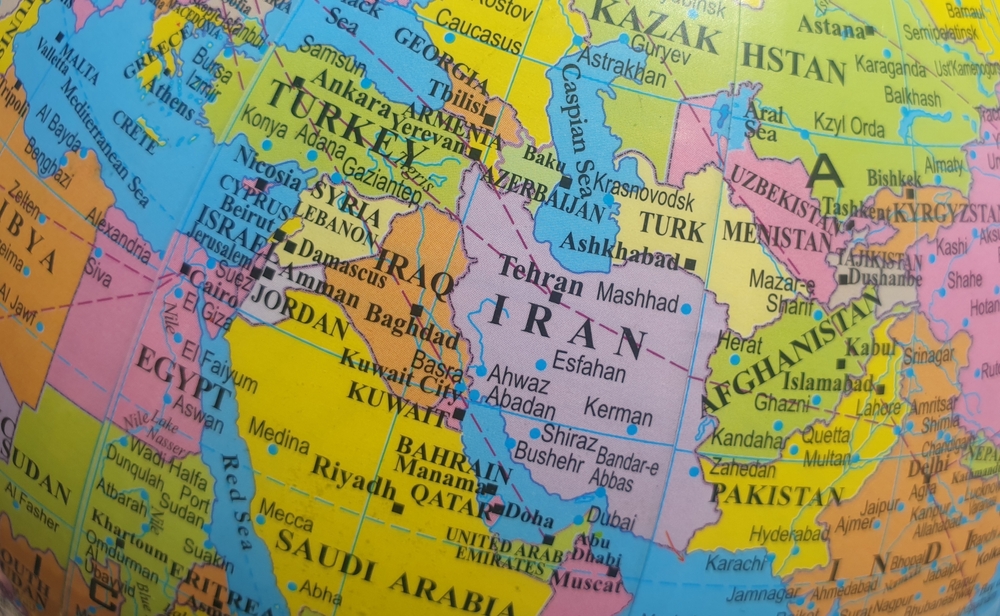
BACKGROUND: Shiite Iran and Sunni Turkey have maintained relations relation without direct military confrontation for nearly 400 years, with their common border unchanged since the signing of the Treaty of Zuhab in 1639. Notwithstanding, Turkish-Iranian rivalry has been a constant in the Middle East and in the Caucasus. Since 2011 the geopolitical competition between Iran and Turkey has largely played out in Syria, where Ankara supported the rebellion and Tehran the Assad regime. Turkey opposes the agenda of the so-called Axis of Resistance, groups aligned with and/or backed by Iran operating across the Middle East. Ankara’s support for Hamas has been only rhetorical and it has not displayed any sympathy for Hezbollah in Lebanon. On November 21, 2024, after a missile attack targeted a cargo ship in the Red Sea, Ankara sent 6 warships to counter and suppress the Yemeni Houthis, Iran’s proxies. Although “The Astana Process” was launched in 2017 at the initiative of Iran, Russia and Turkey to reduce tensions in Syria, the competition and differences between Iran and Russia with Turkey persisted.</>
Iran’s supreme leader, Ayatollah Ali Khamenei blamed the United States, Israel and Turkey for the collapse of Bashar al-Assad’s regime in Syria, after a lightning offensive by Sunni Islamist rebels toppled the regime last year. He said in a public speech that “there should be no doubt that what happened in Syria was plotted in the command rooms of the United States and Israel. We have evidence for this. One of the neighbouring countries of Syria also played a role, but the primary planners are the US and the Zionist regime”. There was no doubt that the neighbouring country that the Iranian leader had in mind was Turkey. Indeed, Iranian analysts largely agreed that the evolving situation in Syria would lead to a new phase of regional competition between Tehran and Ankara.
Turkey has demonstrated that it intends to play a decisive role in shaping the future of Syria and it stands to reap the benefits of the reconstruction of the country. Iran meanwhile, whose overall economic expenditure in Syria is valued at around $20-30 billion, can no longer expect to enjoy any access to Syria. Moreover, the loss of Syria deprives Iran of crucial transit corridors. The creation of the Iran-Iraq-Syria corridor was one of Iran's strategic goals to strengthen its influence in the Middle East region and secure access to the Mediterranean. But with the fall of the Assad regime this transit corridor is no longer viable. Turkey, meanwhile, is seeking implement a 17-billion-dollar “Development Road Project,” which consists of two rail and land routes, in cooperation with Iraq. This transit project could potentially bloc Iran's attempts in transit and transportation in the Persian Gulf, Iraq and the Eastern Mediterranean.
IMPLICATIONS: Iran is also concerned about the revival of the Qatar-Turkey pipeline project with the transfer of Qatar's natural gas through a pipeline that passes through Saudi Arabia, Jordan and Syria to Turkey and brings it to the European market. Although this pipeline faces important challenges – it would notably pass through currently Kurdish-controlled areas in northern Syria where Turkey is yet to assert its authority and secure the disarmament of the PKK affiliated Kurdish militia – its realization can be an alternative not only for the export of Iranian gas to Turkey, but also for the export of Russian gas to Europe. There is no doubt that the revival of the Qatar-Turkey pipeline project would increase Turkey’s bargaining power in the pricing of imported gas from the two competing powers Iran and Russia.
Moreover, Tehran fears that Turkey, after the fall of the Assad regime, will be emboldened to make further headway in the South Caucasus to the detriment of Iranian interests. Specifically, there is a concern in Iran, as well as in Armenia, that Azerbaijan, encouraged and supported by Turkey, will launch an attack on the Syunik province in the south of Armenia in order to realize the Zangezur Corridor and a direct land connection to Nakhichevan.
Iran is strongly opposed to the Zangezur Corridor due to the threat of blockage of the common border with Armenia – without the supervision and control of Armenia – and such an attack, if it were to take place, would obviously have far reaching regional ramifications, further tipping the balance of power in the South Caucasus in favour of the Baku-Ankara axis. A realization of the Zangezur Corridor as a part of the Middle Corridor, parallel to the realization of the “Development Road Project” between Iraq and Turkey, will inevitably reduce Iran's transit advantages in the region. Further, the realization of the Trans-Caspian gas pipeline, along with the revival of the Qatar-Turkey gas pipeline project represents an important challenge for Iran's gas exports in the region.
Another major, indeed existential concern for Iran is that Turkey may seek to disseminate Pan-Turkism and incite ethnic unrest and divisions in the Azerbaijani and Kurdish areas in the northwest of Iran. Such concerns have been fuelled by the December, 2024 launch of the Persian-language service of Turkey's state television channel (TRT). Tehran is particularly sensitive, not least since the director of the TRT media Mehmet Sobacı on October 14, 2024 said “We are to open the TRT Persian channel at the end of this year. We must disturb Iran; we must disturb Iran!” Although he was subsequently dismissed, the controversial comments sparked debate and was met with strong criticism in Iran. In what looked like a direct response to the Turkish move, the head of the Islamic Republic of Iran Broadcasting (IRIB), Peyman Jebeli on January 21, 2025 announced that a Turkish section of Press TV will start broadcasting.
CONCLUSIONS: With the fall of Bashar al-Assad's regime in Syria, Iran has lost a crucial strategic ally in the Middle East and its longstanding regional policy has suffered challenges. Turkey, meanwhile, has gained the strategic upper hand and is advancing its geopolitical and economic goals and ambitions in the region which worries Iran. But the two countries prefer caution and seek to contain their rivalry. This was on display when İbrahim Kalın, the head of Turkey’s National Intelligence Organization (MIT) on February 8 visited Tehran for discussions with senior Iranian security officials, including Secretary of Iran’s Supreme National Security Council Ali Akbar Ahmadian and Minister of Intelligence Seyed Esmail Khatib. The discussions focused on Syria, the war in Gaza and on countering the Kurdistan Workers’ Party (PKK), Daesh (ISIL or ISIS), and other terrorist groups, as well as other shared security threats. This suggests that Iran is aware of the threat to security by the PKK-affiliated Syrian Kurds. For this reason, Iran has welcomed Abdullah Ocalan’s call to disarm and dissolve the PKK. Such a move would have dangerous repercussions in the Kurdistan region of Iraq and possibly also in the Kurdish regions in Iran.
Ankara will try to make the most of the challenges that Iran has suffered in the Middle East. In addition, Turkey feels that it has the advantage in the new round of competition with Iran. But Turkey and Iran nonetheless recognize that they have a shared interest in limiting the scope of their rivalry, foreclosing military escalation.
Vali Kaleji is based in Tehran, Iran, and holds a Ph.D. in Regional Studies, Central Asia and Caucasian Studies.
The Border Wall between Turkey and Iran: Security at the Cost of the Environment?
By Vali Kaleji
May 22, 2024
The Border Wall between Turkey and Iran is one of Ankara's most important security projects in recent decades. However, Iran is worried about the negative environmental consequences caused by the construction of the wall. While shared common security concerns may eventually pave the way for closer cooperation between Turkey and Iran, the border wall nonetheless introduces a new element of discord over environmental issues.
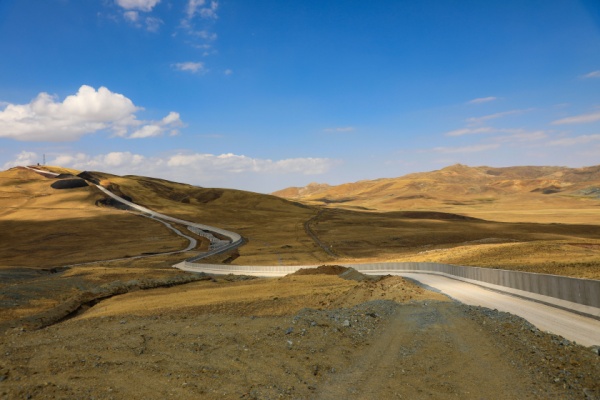
Can Turkey Build a Middle East Consensus for a New Syria Intervention?
By Michaël Tanchum
August 29, 2022
With Russia bogged down in its war against Ukraine, Turkey announced its plans to conduct another military operation in northern Syria. At the July 19, 2022 Turkey-Russia-Iran Summit on Syria, Turkey’s President Recep Tayyip Erdoğan found Moscow and Tehran largely unaccomodating of Ankara’s plans in contrast to Turkey’s previous four interventions. Yet Turkey could use a distracted Russia’s inability to restrain Iran’s strategic designs in Syria as the basis to build a new Middle Eastern consensus for a Syrian intervention, as Egypt, Israel, the United Arab Emirates, and Saudi Arabia are each opposed to Iran’s presence in Syria. Aided by the fact that Turkey has recently engaged in a rapprochement with each of these actors, Ankara will need to convince them of two things to receive tacit consent – a new military intervention would indeed blunt Iran’s advances and that further entrenching Turkish control in northern Syria would not empower jihadi militant and Islamist extremists.
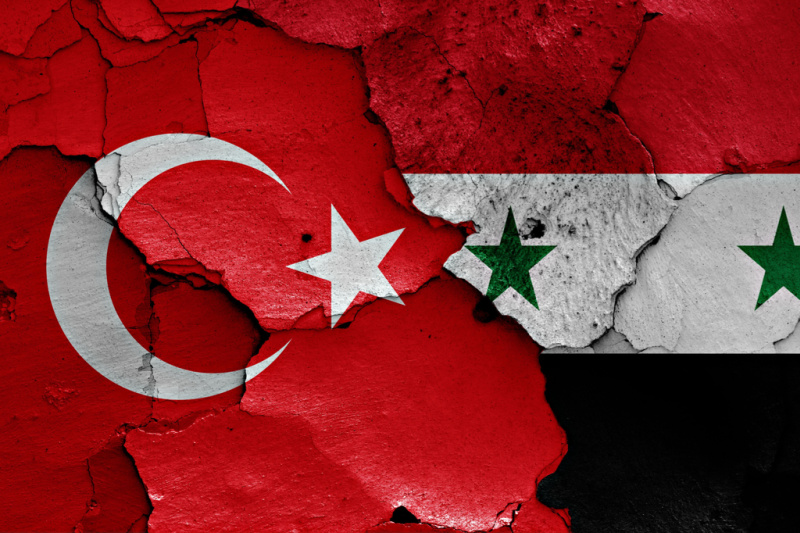
Engulfed in the Gulf: Erdoğan and the Qatar Crisis
By Svante Cornell
June 29, 2017
The Gulf crisis over Qatar is once again catapulting Turkey into the politics of the Middle East, for which it is woefully unprepared. After a brief attempt at neutrality, Ankara threw in its lot with Doha, condemning the sanctions imposed by a Saudi-led coalition and accelerated its deployment of troops to a new base in Qatar. This decision risks upsetting President Erdoğan's tenuous rapprochement with Saudi Arabia, and reflects the continued ideological prism guiding Turkish foreign policy. But it also reflects a concern with regime security. At least in part, Erdoğan's embrace of Qatar reflects a belief that the same forces that supported the overthrow of Egypt's Muhammad Morsi welcomed the July 2016 failed coup in Turkey and now seek regime change in Doha. If so, Turkey's stance is unlikely to change, indicating a standoff may in the making.
